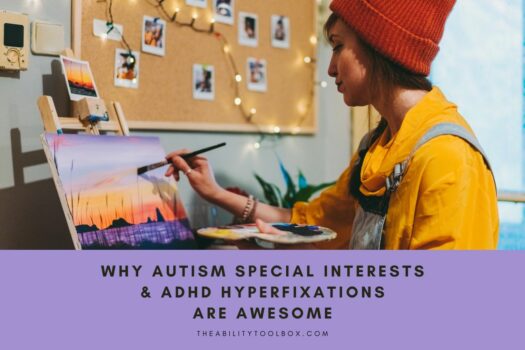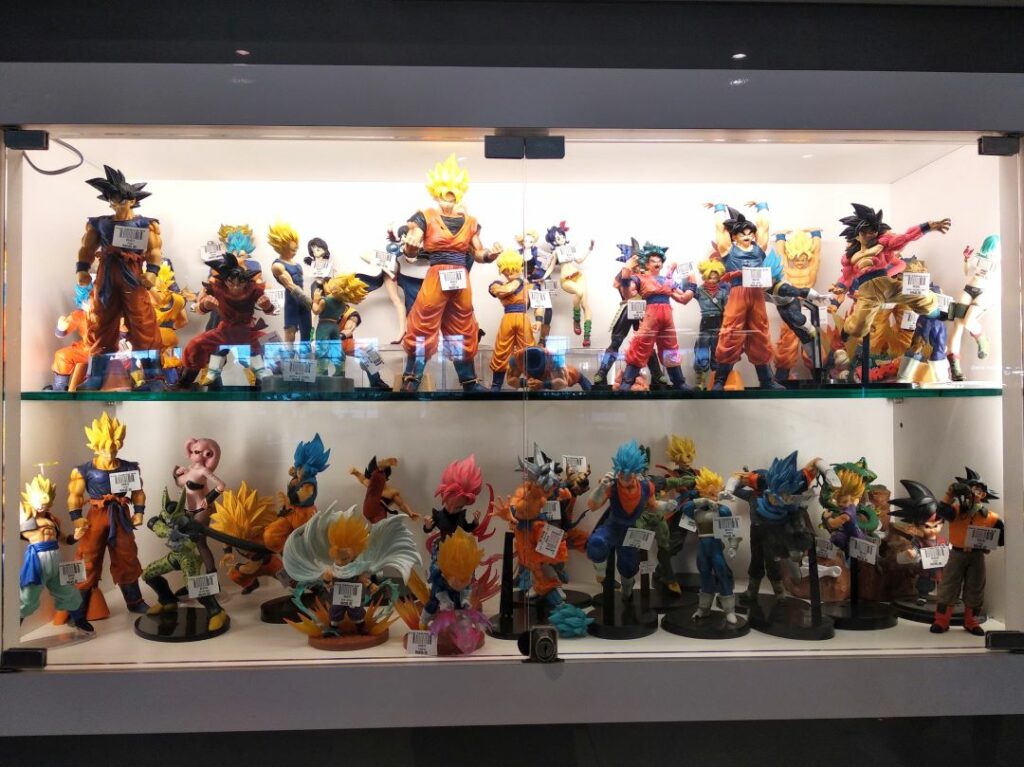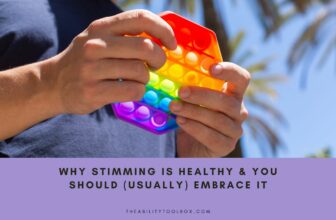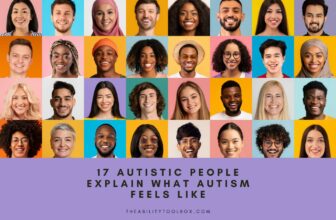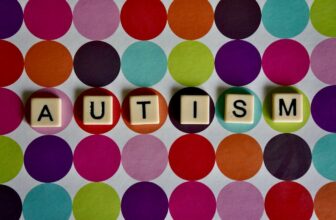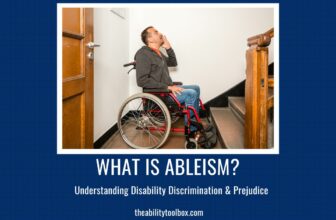Autism and ADHD are distinct forms of neurodiversity that can co-occur quite frequently. You may notice that autistic people and ADHDers can share similar traits, such as intense focus on particular subjects, projects, or objects. This article delves into autistic special interests, comparing them with ADHD hyperfixations and shedding light on why special interests are so important to autistic people’s well-being.
What is a special interest?
You might’ve heard of “special interests” but are unsure exactly how they diverge from regular hobbies. The term is used almost exclusively in the context of autism. However, not all autistics will have special interests (also called SPINs or focused interests) or necessarily know how to summarize why they are different from neurotypical interests.
As with many autism-related terms and concepts, it can be challenging to simply define these interests in such a way that accurately and sympathetically encompasses the full breadth of experience across the spectrum. (Sometimes it seems that whatever can be said about autism, the opposite can be equally true!)
The (pathologizing) DSM-5 diagnostic criteria describe special interests as “highly restricted, fixated interests that are abnormal in intensity or focus.” Indeed, autistic people will often find themselves intensely focused (or even “fixated”) on their special interests, learning a lot about them, thinking about them often, and frequently discussing them with others. However, these interests are not best described as “highly restricted” or “abnormal.” Some autistics will be passionate and knowledgeable about incredibly specified subjects or objects (that may seem unusual to neurotypical people, e.g., washing machine mechanics or high-level Tetris strategies), but anything under the sun can become a special interest, and that’s part of their beauty.
“Highly restricted” is inaccurate as autistics can have several topics of interest at one time. Moreover, special interests can also be broad topics that socially blend in (e.g., punk music, contemporary fashion, mental health), and can adapt or change over time.
Another distinguishing factor is how engaging in a special interest makes an autistic person feel. They can provide emotional regulation, enthusiasm and excitement, energy, stress relief, relaxation, and meaning and connection in life. Time can fly by without an autistic person’s awareness. SPINs can also offer comforting predictability in a stressful, overwhelming world.
I’ve included the following list (these are not true for every autistic person of course, but they may clarify whether something is a SPIN). If you are autistic, you might identify a special interest by asking:
- How often or extensively do I talk, share, or think about this topic?
- Does everything relate in some way to my interest?
- Do I notice connections to my interest (or patterns) that others don’t?
- Am I intrigued by specific details of this topic that others miss?
- Do I find myself bringing the conversation back to this interest or going on detailed tangents?
- Does my most rewarding socializing revolve around this topic?
- Have I molded aspects of my life, e.g., education or career, around it?
- Does it provide me with energy, enthusiasm, and a sense of flow?
- Do I notice this interest adapting or developing over many years?
- Is it sometimes hard to shift 100% of my attention or focus to other tasks?
- Does concentrating on my interest sometimes stop me from other things I have to do (e.g., I forget about or don’t care about them as much)?
- If you are a minor (or not a professional in the area): Are adults (or professionals) sometimes surprised, impressed, or intimidated by the amount of detailed knowledge, expertise, or skill I have in this area?
Misconceptions about special interests
Autism is a spectrum, and every autistic person is an individual like every neurotypical person is an individual. So, how special interests show up and play out can vary greatly (also, in many autistics, these passions sometimes might be influenced by co-occurring ADHD and related hyperfixations, discussed in the next section!).
Below are just a few inaccurate assumptions about SPINs:
- Every autistic has a special interest. As problematic as the diagnostic criteria are, they can be met without having SPINs. Ever. In any topic. (Same as obvious sensory differences, routines, etc.)
- You must be an expert (or “little professor”) on your special interest. Many autistics will indeed have vast amounts of specialized insight, but not every autistic will have an encyclopedic memory or detailed expertise about their SPIN.
- They must be “abnormal,” “restricted,” or highly specific (e.g., 1994 Shanghai train timetables). I’ve heard that the passions of autistic females may be more likely to culturally blend in. For some girls, this could mean interest in animals, fiction, celebrities, sports, or makeup, for example.
- You can only have one special interest at a time. It’s pretty common to have several at once, in the same or different areas.
- A special interest must last for your entire life. I’ve read that they can last for days (e.g., internet rabbit holes), weeks, months, years, or decades!
- They must dominate your life (or be the only thing you’re interested in). While this article rightfully praises special interests, I have heard that SPINs can sometimes become problematic when an autistic person cannot shift their attention away to other tasks and duties (which might even include basic necessities of everyday life, such as eating, hygiene, or using the bathroom).
- An autistic person will always talk at length (or infodump) about their special interest. This isn’t necessarily the case for high-masking or internalizing autistics, who may realize that others aren’t interested. They might suppress infodumps, think or write a lot about their SPIN, or only discuss with safe people.
- Special interests must be intellectual, scientific, creative, or entrepreneurial to have value. This piece provides insight into the necessity of a wide range of special interests. A neurodivergent or disabled person’s worth does not come from how easily they fit the capitalist mold.
Is There a Difference Between Autism Special Interests and ADHD Hyperfixations?
Some commentators have argued that SPINs are exclusive to autism and that those with ADHD cannot have “special interests,” specifically.
However, there is a huge overlap in traits between different neurodivergent conditions – aka neurotypes – and the individuals with them. (This is why defining and refining the diagnostic categories, and accurately identifying which ones a particular individual does or doesn’t have, require highly specialized training and clinical experience/expertise.)
Before the DSM-5, clinicians couldn’t diagnose autism and ADHD together; I guess because they were seen as incompatible. But we now know that it is very common for autism and ADHD to co-occur, sometimes referred to as AuDHD. Around 50%–70% of autistics also have ADHD.
For one example, there is a shared tendency among autistics and ADHDers to have “one-track minds” (or “tunnel vision”). This has been dubbed monotropism. According to the Monotropism site: “Monotropic people have an interest-based nervous system. This means they focus more of their attention resources on fewer things at any one time compared to other people.”
While the DSM-5 ADHD criteria make no mention of periods of intense concentration, or hyperfixating, on certain activities or topics, this phenomenon has been described by many ADHDers. So, how do these ADHD hyperfixations relate to or differ from autistic special interests, especially considering the neurodivergent overlap?
First, let’s look at the similarities between special interests and ADHD hyperfixations:
- You intensely focus all your attention on a particular – sometimes highly specific or detailed – activity or topic for extended periods (to the exclusion of everything else).
- SPINs and hyperfixations can be either short-term engagements (e.g., fascinating rabbit holes) or long-term, recurring interests.
- You pay great attention to certain details or aspects that others wouldn’t.
- Engaging in them can feel like being “in the flow” or “in the zone” (e.g., you may find yourself effortlessly completing or understanding something).
- Time can fly by without your awareness.
- Both can provide emotional regulation, peace, satisfaction, fulfillment, or energy.
- They can be constructive escapes from boredom, stress, depression, or anxiety.
- SPINs and hyperfixations can eventually lead to skill mastery or expertise.
- It can be very challenging to shift your focus away (may neglect other important life areas).
Personally, I am autistic without ADHD (self-realized and formally diagnosed) so, understandably, I know far less about the latter from my lived experience.
Here are some potential reasons why autism special interests should be seen as different from ADHD hyperfixations (particularly, for those with only one condition and not both):
- Longevity and persistence. Autistic special interest ecosystems often endure for years, whereas ADHDers may more often hyperfixate on temporary projects or passing interests. (I guess certain SPINs may be short-lived too or are specific aspects of or related to a broader special interest that endures much longer.)
- Sense of self and identity. Because special interests can last for so long (sometimes for decades), they can become important mechanisms through which autistics develop their identities. Some autistics incorporate them into their education or careers.
- Connection with others. Many autistics love sharing information about their SPINs with other people and actively seek out other enthusiasts. Some may only want to talk about their special interests. ADHD hyperfixations often involve just the individual.
- Not always hyperfixated on autistic SPINs. Autistics don’t necessarily always engage with their special interests through “hyperfocus.” They may also learn about or develop them more casually at times.
- Diversity and changeability of ADHD hyperfixations. While it’s true that some autistic people can and do have diverse interests too, it may be the case that their SPINs are less varied and rapidly changing than ADHD hyperfixations.
- Autistic special interest ecosystems. From my understanding, ADHD hyperfixations are often described in relation to a particular, time-limited task or activity (e.g., finishing a puzzle or book in one go, or hyperfocusing on specific details of a work project). It’s not always the case, but autistic SPINs can evolve and branch out over the years to cover a breadth and depth of information and skills.
I’m sure that ADHDers, AuDHDers, and other neurodivergents can add more to this conversation!
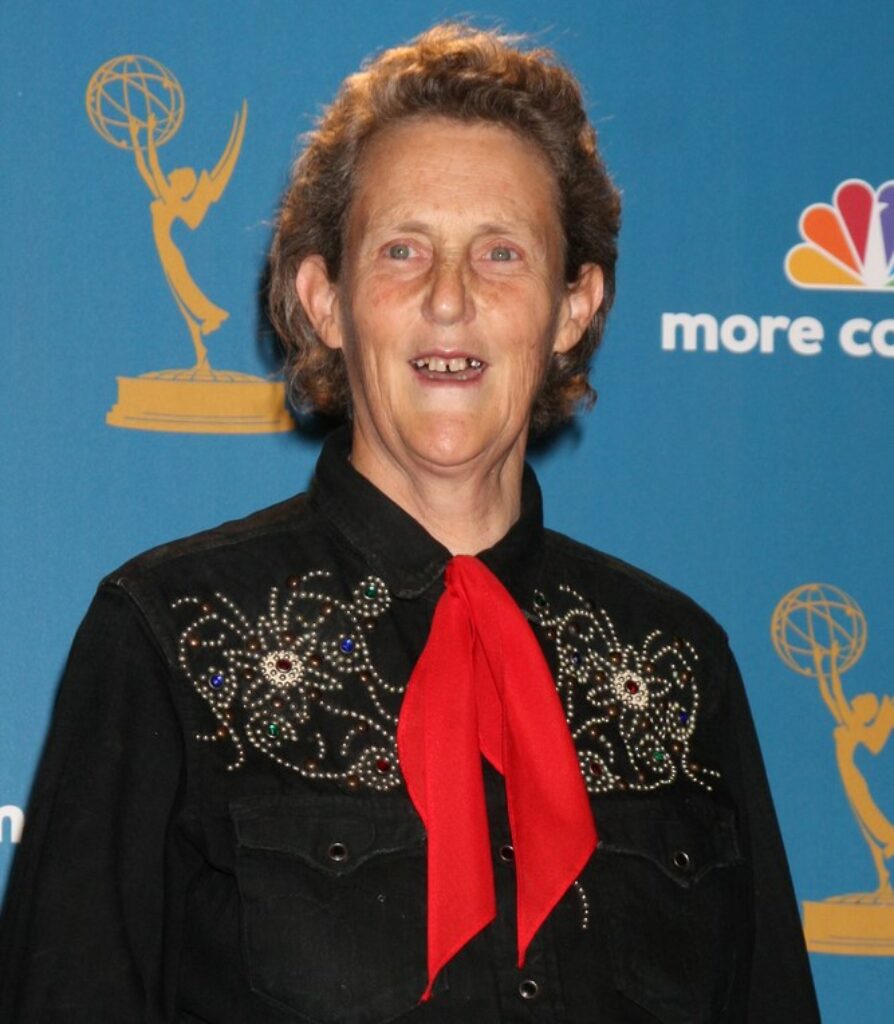
How Special Interests Can Enhance Neurodivergent People’s Lives
Whether you believe special interests are only autism-related or not, most neurodivergents and those close to them will agree that these strongly focused hobbies, passions, and interests are enriching and beneficial. Here are some reasons why.
Neurodivergent people often turn their special interest into a career.
Autistic and other neurodivergent people – when provided the opportunities and accommodations to do so – can leverage their natural gifts into building rewarding careers. As mentioned, hyperfixations and SPINs can lead to uniquely developed skills and expertise, which may be identified and encouraged by employers or best utilized economically through freelancing or self-employment (as touched upon in Unmasking Autism).
Numerous innovative breakthroughs across human history, recorded and unrecorded, have likely been achieved by unidentified neurodivergent individuals. But, of course, SPINs and hyperfocus don’t need to be groundbreaking to be personally and professionally fulfilling and satisfying. (And it’s ableist and inaccurate to think a neurodivergent person’s special interests are only important insofar as they are socially validated or financially rewarded.)
Below are just a few examples of neurodivergent people who’ve turned their special interests into careers:
- Susan Boyle is a Scottish singer who became famous after appearing on Britain’s Got Talent. In 2012, she was diagnosed with Asperger’s syndrome.
- Hikari Oe is an autistic composer with high support needs and visual impairment. As a child, he was intrigued by bird sounds and his parents arranged music lessons for him. He composes chamber music.
- Temple Grandin is a well-known autistic woman who turned her special interest in animal behavior into a career in animal science.
- LiL Penguin Studios is run by an autistic woman named Réka. She draws self-care art informed by her lived experiences.
- Trent from Drawings by Trent is an autistic man with high support needs who, with the support of his family, has turned his lifelong passion for drawing into a successful career.
Special interests can help neurodivergent people make friends.
SPINs are a fantastic way to connect with others through shared interests, whether they are autistic or not. The internet has always been a great resource for neurodivergent people to not only learn in great depth about their passion but also to find communities that share the same interests. There are also in-person hobby groups that are sometimes arranged online.
Neurodivergent people are often found in certain subcultures and fandom communities, like conventions dedicated to video games and particular shows. Moreover, many autistic people have a strong sense of justice and fairness and may have special interests revolving around, for example, environmental protection, animal welfare, and human rights. They may be more commonly found in initiatives and groups dedicated to these topics.
Special interests can be a healthy diversion from sensory overload or stress.
Sensory differences affect each autistic person differently. Some are hypersensitive to, for instance, light, sound, or touch, and others can manage fine until certain busy or unpredictable environments become overwhelming. When coupled with social and communication challenges, sensory overload can exacerbate stress levels, leading to shutdowns and burnout.
Just as engaging in healthy stimming aids in emotional regulation, participating in special interests fulfills similar purposes. These include helping autistic people cope with overwhelming feelings like anxiety (that autistics experience quite frequently), frustration, depression, and boredom.
Here are some ways that autism special interests and ADHD hyperfixations relieve stress:
- Focused engagement: Concentrating for extended periods (sometimes many long hours) fully engages your attention, drawing it away from negative thoughts, feelings, and bodily sensations.
- Comforting escape: They can be sources of solace and happiness (young autistic females might develop elaborate make-believe worlds to escape into).
- Creative outlet: Some autistics and ADHDers have special interests related to art, music, writing, coding, and other creative outlets. Immersing themselves in the intricacies of these subjects is a healthy stress-relief mechanism that can help them work through emotions. They might also share their creations with others online.
- Social connections: Stress, loneliness, and isolation can be alleviated by connecting with others who share your special interests.
- Predictability, control, and repetition: When overwhelmed, autistics and ADHDers can hyperfocus on their special interests in the ways they choose.
- Personal growth: Many neurodivergents love learning. Cultivating knowledge and skills in their SPIN areas can boost their confidence and distract them from stressful situations.
Special Interests, Stigma, and Ableism
Unfortunately, the reality is that many disabled people experience bullying, discrimination, and stigma related to being who they are. For instance, it is not uncommon for neurotypicals to judge neurodivergent traits as “childish,” “immature,” or in need of so-called fixing (e.g., sometimes health practitioners inaccurately diagnose autistic people with “personality disorders” or other dis-orders if their characteristics don’t align with current cultural norms, ideals, or expectations.)
It could be argued that every neurodivergent individual – self-realized or not – will have experienced some form of ableism across their lifetime. Ableism also includes systemic ableism, internalized ableism, and lateral ableism, the latter referring to ableism from disabled people directed at other disabled people, often those with higher support needs. Because we live in neuronormative societies, these forms of ableism are kind of understandable.
So, disabled people with more visibly neurodivergent traits might experience more intense ableism. While high-masking autistics often hide their natural characteristics out of perceived necessity, fear, or social conditioning (trying to pass as neurotypical for survival reasons, usually at great costs to their mental health), it’s important to realize that other neurodivergent folks are unable to conceal their traits or SPINs.
We know neurodivergents can have intense interests in – or preferences for – specific subjects or objects regarded by neurotypicals as “weird” (or “abnormal,” according to the DSM-5) or not “age-appropriate.” These may be niche topics, cartoons, video games, plushies, and so on. And they go beyond just SPINs, also including sensory-related or stimming tools, for example. Interestingly, some autistics have noticed that many of these formerly so-called “cringe” or “unusual” niche subjects or preferences eventually become mainstream – widely embraced or normalized – a few years, decades, or generations later! Neurodivergents can be ahead of their time.
Thinking back to our school years, we can all probably recall instances of peer bullying or negative judgments. But knowing that autistics, ADHDers, AuDHDers, and other neurodivergent children are a minority whose special (and otherwise highly focused) interests are fundamental to who they are, and can be great sources of personal enrichment, self-regulation, and satisfaction, parents and teachers must take action to protect them from ableism and harassment.
There is no “curing” autism or ADHD. Neurodivergent children become neurodivergent adults, who become neurodivergent older adults. I remember reading a post by an autistic content creator who commented that at the heart of many autistic adults is an autistic child who has spent a lifetime being told (directly or indirectly) that they are not enough. And that we should be the difference.
These accommodating, attitudinal changes need to be embedded within the systems supporting young people, whose beliefs about themselves and others are influenced by the actions and attitudes of parents, teachers, health professionals, other adults, and their peers.
Listen to Autistic Voices: What Our Special Interests Mean to Us
We can learn about autism best through the experiences of autistic people. Now, let's listen to insights from individuals on the autism spectrum about the significance of their special interests to them.
“Our special interests are a place we can go and have our thoughts and emotions run smoothly while simultaneously recharging our mental energy from day-to-day life in a way we get to control. For me, special interests fulfill my intense need for learning and research, allowing me to tune out the world around me. From a very young age, I’ve escaped the overwhelming emotions and sensations of the world through art, literature, daydreaming, and fantasy.”
The Autistic Life, Instagram: @theautisticlife
“Ways that special interests may support autistic well-being: Regulating us through repetition and predictability. Re-centering our minds. Giving us a framework through which to understand complex social topics. Connecting us to others who listen to our interest. Filling us with joy as we learn more about our interests.”
Lauren Melissa Ellzey, Instagram: @autienelle
“Special Interests Feel Like: I can access immeasurable information in my mind. My brain flashes imagery lightening fast. All my attention all at once. Everything else fades to dark. I’m in a total flow state. Everything In Sync. Safe. Calm. My body is full of electricity.”
Amanda Mc Guinness, Instagram: @littlepuddins.ie
Embracing Special Interests
Whether it involves autism special interests or ADHD hyperfixations, intense interests are a fundamental part of many neurodivergent people’s lives. Not only do they offer paths to personal growth, self-fulfillment, and connection, but they also help people manage the stresses and overwhelms that can result from being neurodivergent in a neuronormative world.
Moreover, some autistics and ADHDers leverage their unique talents and abilities in their education and careers. Parents and teachers can be important allies in recognizing and encouraging children's particular interests. Embracing the value of these interests, within neurodivergent communities and wider society, we can help create a more inclusive world where everyone’s strengths can be fully realized.
Do you have a special interest? What does it mean to you?
Share your experiences with our community in the comments below.
Monique Moate is a late-diagnosed autistic woman whose interest in autism spectrum disorder and disability stems from a lived-experience viewpoint. She enjoys the written word and thinking about how people use language.

